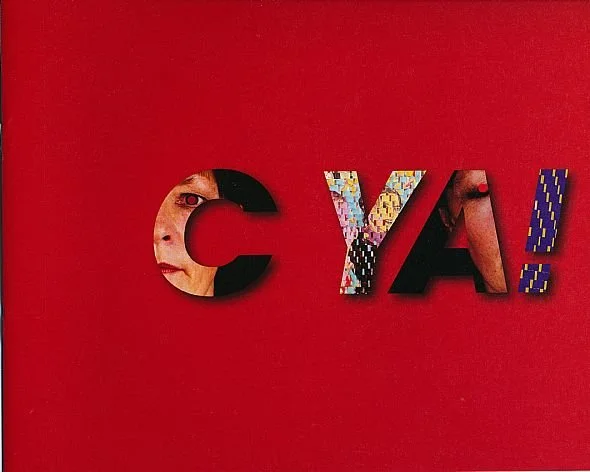C YA !
C ya! – Ingrid W. Berven; photo/video and Lillian Presthus; paintings
Curated by Bjørn Inge Follevaag
C ya – or short for See You – is not only a parting comment but also
recognition of having been noticed by someone. It is a spontaneous
remark which is intuitively recognized for what it is. It also represents a
welcome back. On the other side, however, it may symbolize an outside
observer looking at the world, but not sharing in it. The latter constitutes
the core in this exhibition’s theme.
Contrary to in everyday speech, where intuition helps you make the
right choice through seemingly no effort on your own, the term intuition
in phenomenology refers to immediate recognition. The intuitive body is
a conscious body, and the sum of our personal history; a subject awareness
of its environment reaching out to other subjects recognizing them as
similar.
The observation of such phenomena and how they appear to us as
spectators are key elements in the selection of works for this exhibition
with Ingrid W. Berven and Lillian Presthus. They are also keys to
understanding their works on a human, political, social and emotional
level. From my point of view as curator intuition, the lived body, empathy
and morals may in a meta-perspective be used to describe universal the
universal aspects of Berven/Presthus’ oevre.
They are spectators; observers who take a position outside of their subject
matter, investigating its content and substance; registering but not
judging. With simple, yet effective means they allow us to share what
they have observed, leaving us to analyze, consider accept or reject their
observations.
Lillian Presthus is primarily known for her paintings of domestic
situations and family life, whereas Ingrid W. Berven is probably one of
Norway’s most respected multimedia artists with a stronger social and
political voice.
They are both keen observers – domesticity versus the world – the
individual versus the majority.
Together Berven and Presthus represent opposites on the artistic
scene, but they share a common history and also a common theme.
Separately they have worked consistently within their respective careers
and artistic projects and become highly visible on the Norwegian art scene.
In her deconstruction and transformation project Lillian Presthus
started shredding her old works into thin strips, before weaving them
together as new work. Meticulously she tore up years of family portraits
before reassembling the pieces – and with a massive effort she began to
re-stitch the remains.
This is probably the strongest statement any artist could make: To
try to reassemble pictures of a life, as a process of repair or process of
destruction, or trying to re-establish harmony, meaning and order from
scraps.
The result is a whole new series of work where images of life can be
traced among the woven strips of canvas. The original themes vanished.
Through a painful process what used to be comprehensive works of
identity and remembrance became fragments of narratives and pieces of
identity.
Ingrid W. Berven, on the other hand, questions authority and the art
world. In her videos – similar to Lillian Presthus – she becomes an outsideobserver
to a world which defines art on her behalf. With the power to include or exclude, galleries, curators and art critics often seem to be influenced by the art world’s shifting fashions or hypes. In her videos she
is a spectator, but also through the lens of her camera or in her installations
she becomes the onlooker. Her comments to the heavy hand of the market
are highly relevant.
Ingrid W. Berven also works with identity and belonging. Her
comments on the world we live in; our consumerism, lifestyle, shallowness
and greed are universal questions which need to be addressed. She also
comments on the power structures in the art world, the curators, market
mechanisms and issues of integrity. Her works are highly relevant
observations of life, and make us reflect on the systems we all are part of.
Together these two “observers” offers the public a perspective form the
“outside” to different yet similar worlds.
